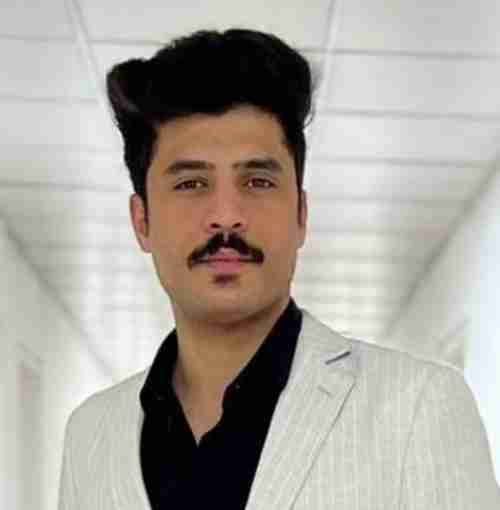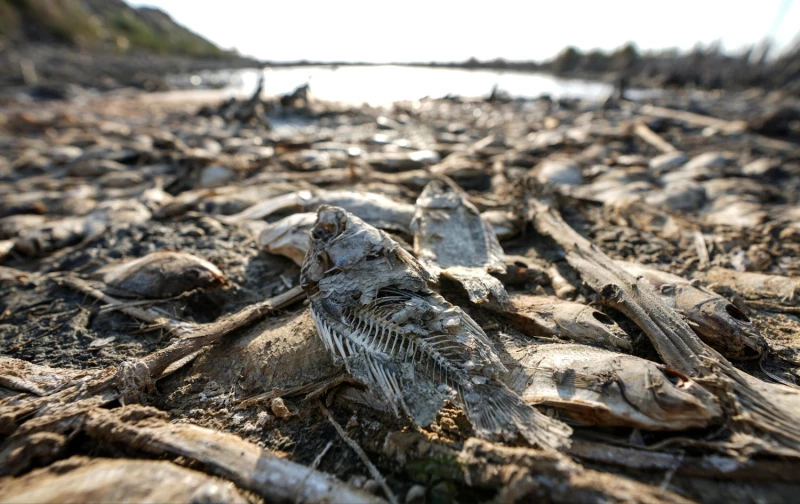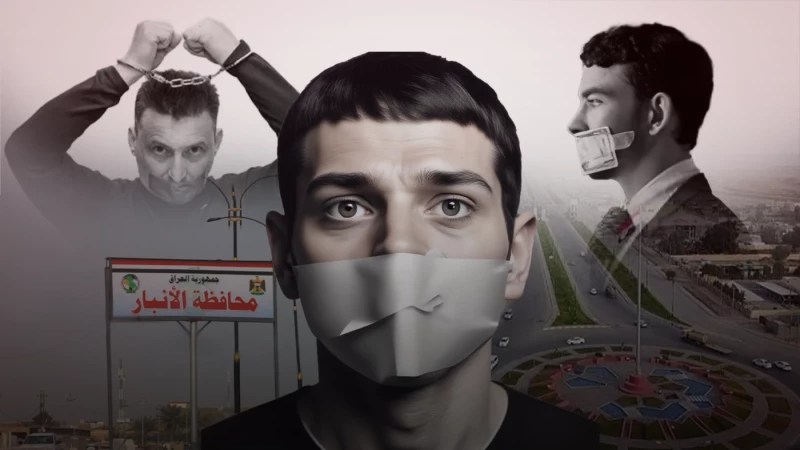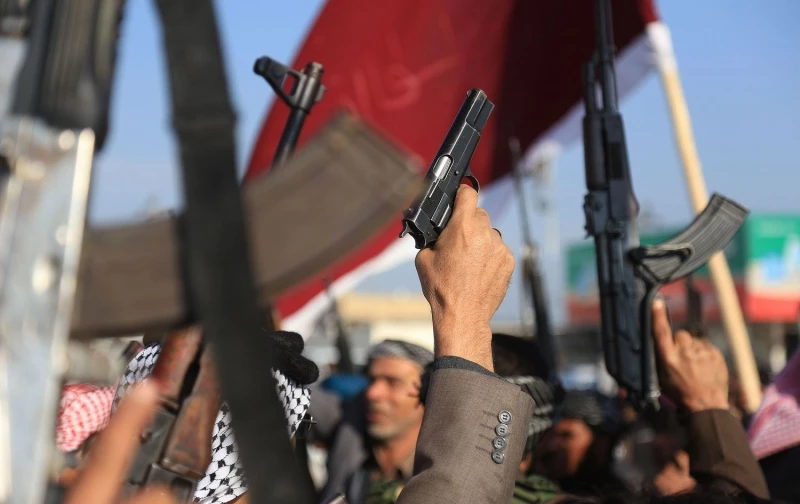BAGHDAD, Iraq – Nearly 500,000 voters born between 2004 and 2005 have registered to vote in Iraq’s upcoming Dec. 18 provincial council elections.
Other youths also born in the years immediately following the fall of the Saddam Hussein regime say they see little to no point in taking part in the electoral process.
Election Commission spokesperson Jumana Al-Ghalai, who provided the figures to The New Region, added in an interview on Nov. 15 that “the election commission has distributed the first batch of biometric cards. The second batch will be distributed soon to the provincial electoral offices and registration centers.”
Ghalai added that Iraq’s northwestern province of "Nineveh came in first place” in terms of biometric cards issued to young Iraqis, followed by Baghdad’s Rusafa district on the eastern banks of the Tigris River. Meanwhile, youths across the country are weighing what the benefits of voting actually are and whether or not it is worth their time.
Baghdad teenagers disillusioned and confused
In Baghdad’s Sadr City, Ahmed Saad rattled off the various elections his parents and siblings voted in.
But “what did we gain” from voting in previous elections, he asked cynically in speaking to The New Region about how he feels about the upcoming elections.
This will instead be the first for him.
Saad, 19, lives in Sadr City in the eastern part of the Iraqi capital. Known initially as Revolution City and then Saddam City before 2003, this part of the Iraqi capital is known for its high poverty and population density rates.
Iraq as whole has a very young, rapidly growing population. Of Iraq’s estimated over 43 million inhabitants, at least 40 percent is under age 15.
Saad, a second-year university student in political science, expressed doubt in speaking to The New Region in Baghdad on Nov. 15 about whether he would secure a steady job after finishing his education.
He scoffed at the election posters plastered through the streets of the city, gesturing at the faces on them and saying “those people want to climb up on our shoulders”, implying that Iraqi politicians move forward through exploiting the population.
The young man said his life had been filled with anxiety and fear. Born a year after the fall of Saddam Hussein’s regime, he went to sleep with and woke up to the sounds of American bombing.
His childhood, he added, had been marked by the rampant sectarianism that Iraq witnessed in the years between 2006 and 2007, as well as deadly attacks that continued until the entry of the Islamic State of Iraq and Syria in December 2013 and the latter’s subsequent takeover and occupation of a third of the country’s territory prior to being officially defeated in December 2017 after years of war and destruction.
After this tumultuous time, at the age of 15 Saad took part in the massive protests that broke out across central and southern Iraq in October 2019.
Hundreds of people were killed in the protests, which participants say they got involved in due to the hope that such a major event would shift the scales of their lives and result in a dignified life.
And simply for “electricity, stability, and services,” he stressed, noting the practical nature of many of the protestors’ demands.
Saad said he, unlike his parents and grandparents and siblings in previous elections, would refuse to take part in the voting.
“My grandfather cast his vote in the previous provincial council elections. And then he cast his vote in the parliamentary elections for two sessions before he died in 2020. My father, mother, brothers and sisters participated in various elections, including the provincial council elections and several parliamentary elections. But what did we gain?” the teenager said with evident disappointment.
“The political process has lost its legitimacy,” he said. “Those who run it are thieves.”
‘Drowning in false slogans’
Much of 18-year-old Ali Muhammad’s life mirrors that of Saad’s, given that they lived through the same historic events and were born less than a year apart.
However, while Saad is studying at university, Muhammad does not hold even a high school diploma.
Muhammad dropped out in the second grade of middle school. He now works in his father’s grocery store in a market in the Shoula district on the Karkh side of Baghdad, on the western side of the Tigris River splitting the city in two.
The teenager seemed taken aback when asked about his position on the upcoming provincial council elections and about whether or not he would be taking part in them.
Struggling to express a clear position, he told The New Region that “I don’t know whether to vote or not, and who to vote for.”
“There is no clear program for any candidate. They are drowning us in useless, fake slogans,” he added.
Nonetheless, Muhammad said that he longs to enter the polling station and “smear his finger with ink”, as he puts it.
“I remember that I went with my father to the polling station during the parliamentary elections, twice, and put my finger in the ink,” he reminisces, wistfully.
However, he noted, at that time “I was not sufficiently aware of what was going on.”
Now, instead, he credits social media for having made Iraqi youth more politically aware and involved.
The 18-year-old ended by saying that he would “try to find someone who deserves my vote”, but failing this he said he would still “go [to the polling station] and destroy the ballot, in order to satisfy my curiosity about voting.”
Curiosity sole common denominator
On the post-2003 generation, political affairs researcher Ali Al-Baidar told The New Region on Nov. 16 that he believes it is a generation born into suffering and raised on frustration.
“It is not possible to convince this generation of things other than what they saw, because they experienced post-2003 conditions first-hand,” Baidar noted, stressing that “we cannot compare present-day reality to the past for this generation” since “they have different standards and visions”.
The current generation compares the country’s budget with that of others, Baidar said, noting a clear difference in the standard of living.
He added that this generation can be described as one of the most dissatisfied with the current political system and authorities.
The political affairs researcher claimed any participation of those born in 2004 and 2005 in Iraq’s provincial council elections would be driven simply by “curiosity”, the desire to feel what it is like.
“Voter turnout for those born in 2004 and 2005 will be average. However, they will prove to be the most dynamic” of Iraq’s generations, “interacting with events” and “dreaming”, as this generation wants to see Iraq changed, he added.
Facts on the vote
The provincial council elections are scheduled to be held on Dec. 18, over a decade since they were last held in April 2013.
They will be held in 15 out of Iraq’s 18 provinces, with only the provinces of the Kurdistan Region of Iraq not taking part.
In line with the Iraqi constitution, provincial councils have broad powers and are not subject to the control or supervision of any ministry or other entity, enjoying wide-ranging administrative and financial powers.
Official voter turnout in the 2021 parliamentary elections stood at 43%, lower than the 44.52% seen in the previous parliamentary elections held in 2018.

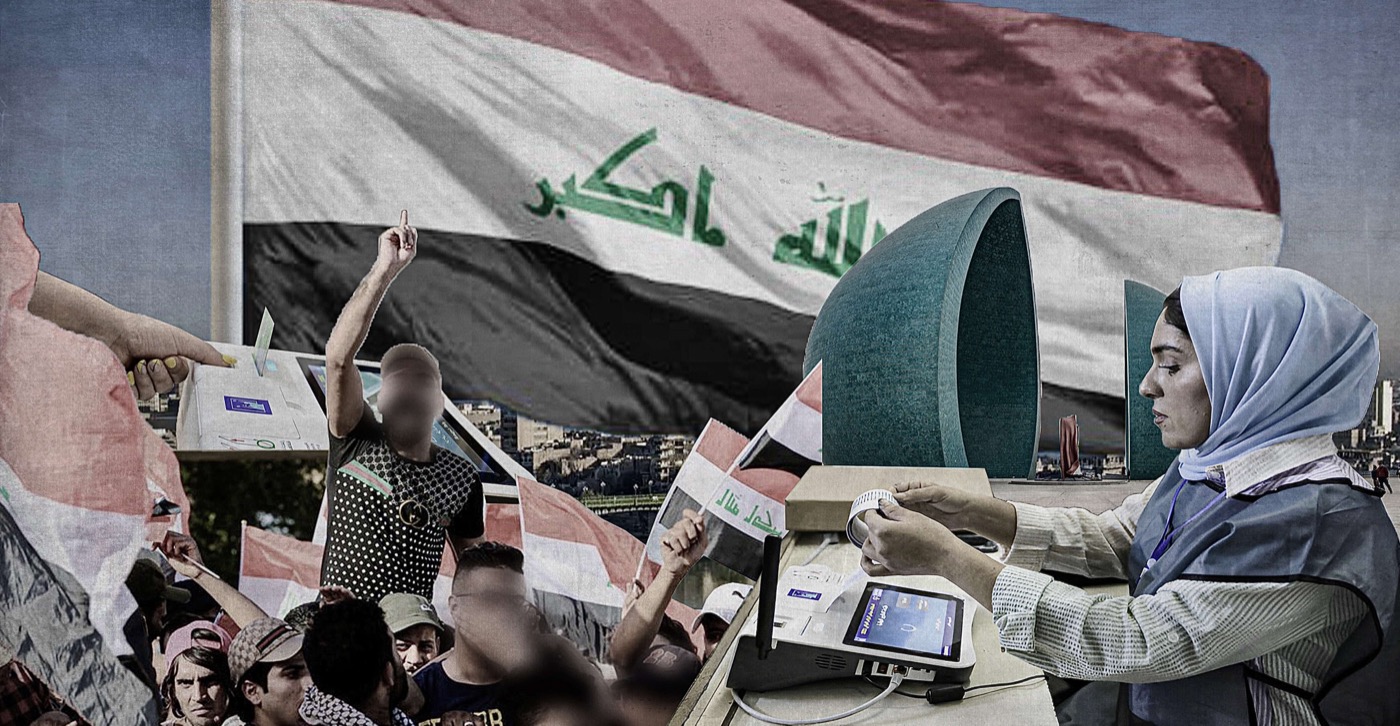
 Facebook
Facebook
 LinkedIn
LinkedIn
 Telegram
Telegram
 X
X
